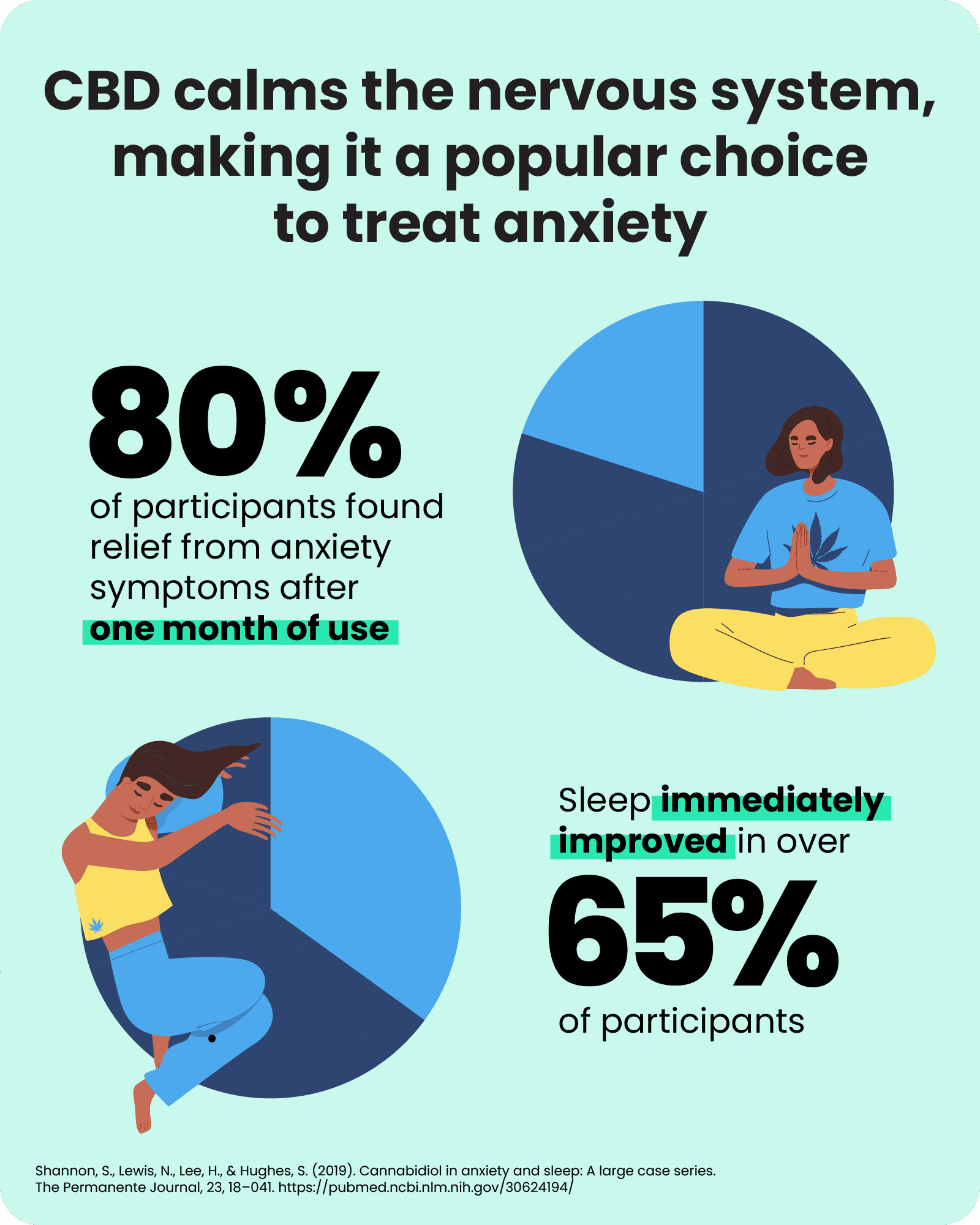Does CBD Actually Help You Sleep?
The Effects of Taking CBD

How can CBD Help with Sleep Disorders?
Many studies show that taking a high dosage of CBD before bedtime can assist patients suffering from chronic pain, anxiety, insomnia, REM sleep behaviour disorder, and a variety of other sleep disorders. In one study, 80% of patients who took CBD as an anxiety medication reported decreased anxiety levels after one month. More than 65% of individuals’ sleep also improved.
It is important to remember that anxiety and sleep problems frequently coexist: anxiety may contribute to poor sleep quality, while sleep deprivation can lead to worry. Insomnia is one sleep condition that comes under this group. Insomniacs have difficulty sleeping and/or staying asleep, and worry can exacerbate these symptoms. Cortisol (the stress hormone) levels typically peak in the morning, but people who suffer from insomnia have elevated cortisol levels in the evening hours, which can contribute to greater concern about obtaining enough sleep and increased restlessness at night.
REM sleep behaviour disorder is another sleep ailment that CBD has been shown to treat. REM sleep behaviour disorder is common in Parkinson’s and Alzheimer’s patients, and symptoms include violent movements and verbalising while sleeping. A recent study discovered that CBD treatment reduced symptoms in individuals with REM sleep behaviour disorder from 2-7 times per week to 0-1 times per week.
What Are the Different Ways to Take CBD?
There are many different forms of CBD commonly available:

In one study on the effects of CBD, researchers found that cortisol levels decreased more significantly when participants took 300 or 600 mg of CBD oil. These results suggest that CBD affects the release of cortisol, possibly acting as a sedative.
A more recent analysis of CBD and sleep recruited 103 participants who had anxiety or poor sleep. The researchers studied the effects of CBD combined with those of other prescribed medications.
The CBD dosages ranged from 25–175 mg. The researchers found that 25 mg was the most effective dosage for anxiety and that addressing troubled sleep required higher dosages.
To help you get started on improving your sleep, here’s a 20% discount coupon you can use: SLEEP20

Recommended Blog: Using CBD for Anxiety in 2024


